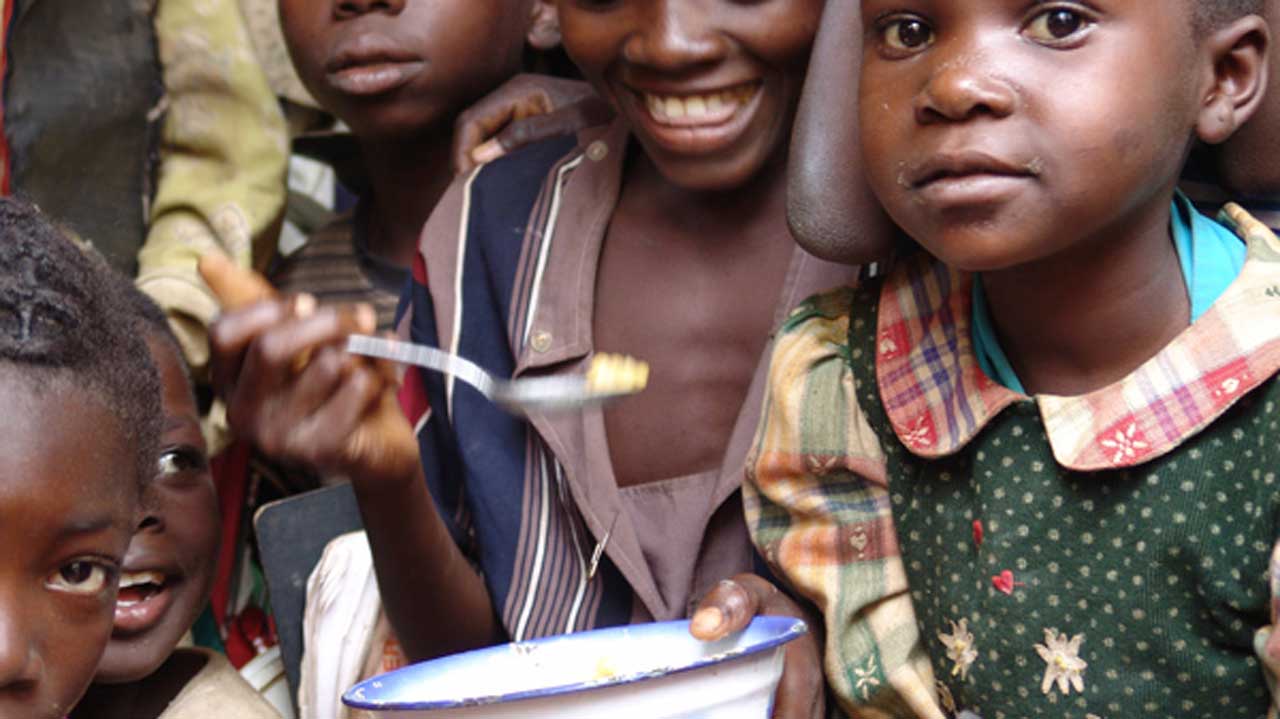
Foundation creates mobile application to distribute surplus food
The alarming and unprecedented rise in Nigeria’s poverty rate has continued to pose a serious threat to the realization of the United Nations’ Sustainable Development Goal (SDG) to end extreme poverty by 2030.
A recent report by The World Poverty Clock revealed that Nigeria, with a population seven times lesser, has overtaken India as the country with the most extreme poor people in the world. According to the report, the number of extremely poor Nigerians has risen to 91.6 million, indicating that half of the country’s population now lives in extreme poverty.
The World Poverty Clock, a tool to monitor progress against poverty globally, disclosed that six Nigerians become poor every minute.
If effective and efficient measures are not quickly implemented and put in place to curb the trend, the problem will worsen with the reality of the nation’s expected population boom by 2050 to become the world’s third largest country.
However, if the country is aiming to not only alleviate poverty but also eliminate it altogether, it must adopt new strategies, modern technological approaches and innovations, having in mind that resources are spread thin across the nation’s citizens, and the government is struggling to keep the economy adrift.
With technology always growing and changing, it is now easier than ever to fight poverty, help the needy and support low-level societies in unique ways. This is so because almost everyone has a phone, a computer or an Internet-enabled device.
To leverage on this, a Non-Governmental Organisation, Open Hands Foundation has developed a technology that brings together many aid rendering bodies, particularly in the United States under a single platform for direct access by less privileged people in Nigeria, as part of its effort to reduce poverty in the country.
The foundation, with its ‘No Need’ application is using an astute blend of human resources and information technology to create a civilisation where resources are readily accessible and spread more evenly across society. The No Need App is a mobile platform where restaurants can donate surplus food in real time to users in need on a daily basis.
Run by a team of astute professionals including Nigerian Joshua Omisore, a descendant of the royal and political family in Osun State, the company’s mandate is to use technology to serve the most vulnerable with support and with innovative solutions to their problems. Omisore is a relative to former deputy governor and governorship candidate of the Social Democratic Party in State’s 2019 gubernatorial poll, Senator Iyiola Omisore. He is a tech entrepreneur with perfect SAT scores and a plethora of high-level connections that has put together a great team of business and community leaders across the United States and Nigeria, including co-founder Brandon Fuchs, who also helped come up with the initial idea, to create a medium that provides voice for the less privileged members of society.
Explaining the mode of operation to The Guardian in a telephone conversation, a partner in the foundation, Adesiyan Toluwanimi highlighted that when restaurants are nearby, it only takes an employee to take a picture and post surplus food on the app, while nearby users are notified that food is available immediately.
According to him, the platform is a food donation system, with a simplified pick up process powered by artificial intelligence, which in turn offers instant tax deduction receipts to the offering restaurants. The application ensures an unlimited supply of food donations from different locations.
Some of its distinguishing benefits to users are; no long lines, multiple locations to choose from and shame factor is eliminated. “To get the food, users are notified through the application and they have the option to choose from the available restaurants based on promiximity, dietary preferences amongst other criteria and therefore proceed to pick up food donations from these restaurants. We are aimed at reducing food insecurity among people, eliminating food waste, and we hope to feed one million people through the No Need App each year”.
He asserted that the artificial Intelligence embedded provides the capability to acquire, categorise, process, apply and extrapolate data at speeds that are physically impossible for the human mind to attain.
According to him, using AI applications like speech recognition, machine vision and expert systems, gigabytes of information can be compiled and manipulated at a moment’s notice. It stands to reason that with the use of Artificial Intelligence, partnering with socially-motivated private institutions, government organisations and initiatives, poverty should be on the decline in Nigeria.
“With more support, Open Hands Foundation can effectively use interactive information to bridge the gap between solution providers and their target market, while simultaneously expanding their reach. The ultimate goal is to build a community and network of people and organisations and subsequently synergise their efforts by integrating the efforts of NGOs and organisations that offer the same or similar services. By creating a unified front, information dissemination and service delivery are optimised. We can ensure that vital services are efficiently delivered to those who need them and that those who benefit from these services are always satisfied”, Toluwanimi explained.
The organisation by starting operations in Nigeria hopes to contribute its quota to the realisation of the UN’ zero poverty by 2030. It is also developing a workable structure and model on how to efficiently and effectively play their part to help achieve this over the next decade.



